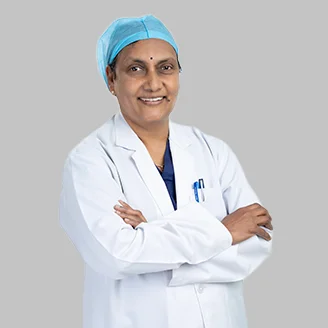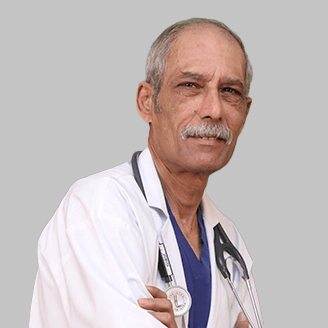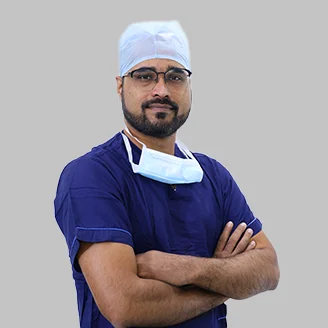-
Doctors
-
Specialities & Treatments
Centre of Excellence
Specialties
Treatments and Procedures
Hospitals & Directions HyderabadCARE Hospitals, Banjara Hills CARE Outpatient Centre, Banjara Hills CARE Hospitals, HITEC City CARE Hospitals, Nampally Gurunanak CARE Hospitals, Musheerabad CARE Hospitals Outpatient Centre, HITEC City CARE Hospitals, Malakpet
HyderabadCARE Hospitals, Banjara Hills CARE Outpatient Centre, Banjara Hills CARE Hospitals, HITEC City CARE Hospitals, Nampally Gurunanak CARE Hospitals, Musheerabad CARE Hospitals Outpatient Centre, HITEC City CARE Hospitals, Malakpet Raipur
Raipur
 Bhubaneswar
Bhubaneswar Visakhapatnam
Visakhapatnam
 Nagpur
Nagpur
 Indore
Indore
 Chh. Sambhajinagar
Chh. SambhajinagarClinics & Medical Centers
Book an AppointmentContact Us
Online Lab Reports
Book an Appointment
Consult Super-Specialist Doctors at CARE Hospitals

Heart Transplant
Heart Transplant
Best Heart Transplant Procedure in Hyderabad, India
A heart transplant is a surgery performed to replace a diseased heart with a healthy heart obtained from an organ donor. Before we decide on a heart transplant for a patient, we ensure that the patient is healthy enough to undergo the transplantation. CARE Hospitals has the best heart transplant hospital in Hyderabad with highly qualified surgeons.
Who needs a heart transplant?
A heart transplant is a treatment of choice for patients suffering from heart failure when all other treatment options fail. Some primary factors of heart failure comprise:
-
Viral infection within the heart muscles
-
Heart attack or myocardial infarction (MI)
-
Heart valve disease
-
High blood pressure
-
Drug abuse or alcoholism
-
Arrhythmias (irregular heartbeats)
-
Pulmonary hypertension
-
Heart muscles become stiff, enlarged, and thick
-
Low count of red blood cells
Evaluation process followed by CARE Hospitals before recommending heart transplantation
The process of transplant evaluation includes:
- Blood tests - We suggest a blood test to help patients find a perfect donor match and make the chances of rejection zero or minimal.
- Social or psychological evaluation - Some social and psychological issues associated with organ transplants comprise financial issues, stress, and less support from the family. These factors play a key role.
- Diagnostic tests - Our team assesses your lungs and the healthcare provider. These tests may include ultrasound procedures, X-rays, pulmonary function tests (PFTs) CT scans, and dental examinations. Women may be recommended to get a gynecology evaluation, a Pap test, and a mammogram.
Our transplant team works on the entire information such as your health history, diagnostic tests, and physical examination.
Benefits of Heart Transplant
Improved Quality of Life: For many recipients, a successful heart transplant can lead to a significant improvement in their quality of life, allowing them to resume normal activities.
- Increased Life Expectancy: A heart transplant can extend the life expectancy of individuals with end-stage heart failure.
- Improved Heart Function: With a healthy, functioning heart, recipients experience improved cardiac function and overall cardiovascular health.
- Symptom Relief: Symptoms associated with heart failure, such as shortness of breath and fatigue, are often alleviated after a successful transplant.
- Return to Normal Activities: Many recipients can return to work, engage in physical activities, and enjoy a more active lifestyle.
- Emotional and Psychological Benefits: The relief of living without the constant threat of heart failure can have positive effects on mental health and emotional well-being.
- Enhanced Social Connections: Being able to participate in social activities and maintain relationships can contribute to an improved social life.
- Medical Advances: Ongoing advancements in transplant medicine, surgical techniques, and postoperative care continue to enhance the overall success and outcomes of heart transplants.
Risks of Heart Transplant
- Rejection: The immune system may recognize the transplanted heart as foreign and attempt to attack it. To prevent this, recipients must take immunosuppressive medications, which come with their own set of risks.
- Infection: The immunosuppressive drugs used to prevent rejection can weaken the immune system, making recipients more susceptible to infections.
- Side Effects of Medications: Immunosuppressive medications can have side effects, including kidney damage, high blood pressure, and an increased risk of diabetes.
- Bleeding: Surgery carries the risk of bleeding, both during the operation and afterward.
- Blood Clots: Patients are at an increased risk of developing blood clots, which can lead to serious complications such as stroke or heart attack.
- Organ Failure: Other organs, such as the kidneys or liver, may be affected by the surgery or the medications, leading to potential organ failure.
- Cancer Risk: The long-term use of immunosuppressive drugs may increase the risk of certain cancers.
- Psychological Challenges: Adapting to life with a new heart and ongoing medical management can pose psychological challenges for some patients.
The procedure of Heart Transplant
A heart transplant is a complex surgical procedure that involves replacing a diseased or failing heart with a healthy heart from a deceased donor. Here is an overview of the heart transplant procedure:
- Patient Evaluation: Before a heart transplant, a thorough evaluation of the patient's medical history, current health status, and potential for success with a transplant is conducted. This evaluation includes tests to assess heart function, lung function, kidney function, and overall health.
- Listing for Transplant: If the patient is deemed a suitable candidate for a heart transplant, they are placed on a waiting list for a compatible donor heart. The allocation of donor organs is based on factors such as blood type, body size, and medical urgency.
- Waiting for a Donor: Patients may need to wait for an extended period for a suitable donor heart to become available. During this time, they continue to receive medical management and support for their heart condition.
- Preoperative Preparation: Once a donor heart becomes available, the patient is notified, and they are admitted to the hospital for the transplant procedure. Preoperative preparations include blood tests, imaging studies, and other assessments.
- Anesthesia: The patient is given general anesthesia to ensure they are unconscious and pain-free during the surgery. An endotracheal tube is inserted to assist with breathing, and various monitors are used to track vital signs.
- Incision: The surgeon makes an incision down the center of the chest (median sternotomy) to access the heart. In some cases, alternative incisions may be used.
- Cardiopulmonary Bypass: The patient is connected to a heart-lung machine, which temporarily takes over the pumping of blood and oxygenating it, allowing the surgeon to stop the patient's heart for the transplant.
- Removal of Diseased Heart: The surgeon removes the patient's diseased or failing heart, leaving the back portions of the atria (upper heart chambers) intact.
- Donor Heart Implantation: The healthy donor heart is implanted into the chest and connected to the remaining atria and major blood vessels. The coronary arteries of the donor heart are also attached to the recipient's coronary arteries.
- Weaning from Bypass: The patient is gradually weaned off the heart-lung machine, and the transplanted heart assumes the role of pumping blood through the body.
- Closure of Chest: The surgeon closes the chest incision with sutures or staples.
- Postoperative Care: The patient is transferred to the intensive care unit (ICU) for close monitoring and recovery. Postoperative care involves immunosuppressive medications to prevent rejection of the transplanted heart.
- Rehabilitation and Follow-Up: After leaving the hospital, patients undergo rehabilitation and participate in ongoing medical follow-ups to monitor the function of the transplanted heart and manage medications.
How are heart transplants executed?
A heart transplant needs open-heart surgery and a considerable stay in the hospital. As per the specific condition of a patient, procedures might vary. Usually, the Heart Transplant Procedure in Hyderabad follows:-
-
The healthcare provider begins an (IV) intravenous in the patient's hand or arm for injecting medicine and for providing IV fluids. In the blood vessels of your wrist and neck, additional catheters are inserted for monitoring the blood and heart pressure status (as well as to take samples of blood). For additional catheters, they may find the groin and collarbone.
-
A flexible and soft tube known as a Foley catheter is put inside the bladder for draining urine.
-
A tube is put via the nose or mouth in the stomach for draining stomach fluids.
-
If excessive hair is there on the chest, it may be shaved.
-
This procedure is performed when the patient is in deep sleep (general anesthesia). Once the patient is asleep, a breathing tube is put via his mouth into the lungs. The tube is connected to a ventilator (machine) that accomplishes the breathing process during the heart transplantation surgery.
-
The anesthesiologist keeps a close watch on the blood pressure, heart rate, and oxygen flow of the patient during the surgery. Further, the skin of the chest is cleaned using an antiseptic solution.
-
The surgeons perform an incision (cut) at the center of the patient's chest (just above the navel).
-
Surgeons put tubes inside the chest to ensure blood is pumped properly within the body by a cardiopulmonary bypass (heart-lung) machine when the heart is replaced or stopped.
-
The donor's heart is sewn into the place of the heart. Once the placement of the heart is done perfectly, the blood vessels are connected carefully to avoid any sort of leaks.
-
Once the fresh heart is connected fully, the blood circulation via the bypass machine is allowed to go back into the tubes and heart. Now, it is time when the surgeon will shock the heart using a small paddle for restarting the heartbeat.
-
Once the donor's heart starts beating in the patient's body, the surgeon's team will assess the heart to see whether it is working fine without any traces of leaks.
-
In the heart, wires might also be put for pacing. The surgeons can attach the wires to a pacemaker outside the patient's body for a short duration to pace the new heart for a short duration. If required, it is done in the initial period.
-
After this, the team of surgeons starts rejoining the sternum and sews it collectively using small wires. Sutures and surgical staples are used for closing the incision.
Once this surgery is accomplished successfully, the patient remains in the hospital under the doctor's supervision for a week or more. After that, he is advised to rest and medications for a specific duration with regular follow-up visits and also provides very reasonable heart transplant cost in Hyderabad.
Our Doctors
-

Dr. Manish Porwal
MBBS, MS, MCH
Cardiac Surgery
View More -

Dr. A. V. Venugopal
MBBS, MD, DM (Nephrology)
Nephrology, Renal Transplant
View More -

Dr. Ajay Parashar
MS, MCh (Urology)
Renal Transplant, Urology
View More -

Dr. Ajit Kumar Shadani
MBBS, MD (General Medicine)
General Medicine/Internal Medicine
View More -

Dr. Ashok Panda
MBBS, MD (Medicine), DM (Nephrology)
Nephrology, Renal Transplant
View More -

Dr. Bibekananda Panda
MBBS, MD, DNB (Nephrology)
Nephrology, Renal Transplant
View More -

Dr. G Rama Subramanyam
MBBS, MS, MCh (Cardiothoracic Surgery)
Cardiac Surgery
View More -

Dr. G. Usha Rani
MS, MCh
Cardiac Surgery
View More -

Dr. J.AL. Ranganath
MBBS, MD, DM (Nephrology)
Nephrology, Renal Transplant
View More -

Dr. Jyoti Mohan Tosh
MBBS, MS (General Surgery), Mch (Urology)
Renal Transplant, Urology
View More -

Dr. M Sanjeeva Rao
MBBS, MS, MCh (AIIMS)
Cardiac Surgery
View More -

Dr. P Vamsi Krishna
MBBS, MS, MCh
Renal Transplant, Urology
View More -

Dr. Pradip Saruk
MBBS, MD, DM Nephrology
Nephrology, Renal Transplant
View More -

Dr. Prawash Chaudhary
MBBS, MD (Medicine), DNB (Nephrology)
Nephrology, Renal Transplant
View More -

Dr. Ramiz Panjwani
MBBS, MD, DM
Nephrology, Renal Transplant
View More -

Dr. Ratan Jha
MBBS, DM, DNB, MD, DTCD (Gold Medallist), FISN
Nephrology, Renal Transplant
View More -

Dr. Sanjeev Anant Kale
MBBS, MD, DM, DNB, SGPGIMS
Nephrology, Renal Transplant
View More -

Dr. Sucharita Chakraborty
MBBS, MD (General Medicine), DM (Nephrology)
Nephrology, Renal Transplant
View More -

Dr. Sumanta Kumar Mishra
MBBS, M.S (General Surgery), M.CH (Urology, CMC, Vellore), DNB (Genito-Urinary Surgery)
Renal Transplant, Urology
View More
Frequently Asked Questions
Couldn’t find what you were looking for?
Need any help? Get a Call Back.

Still Have a Question?

